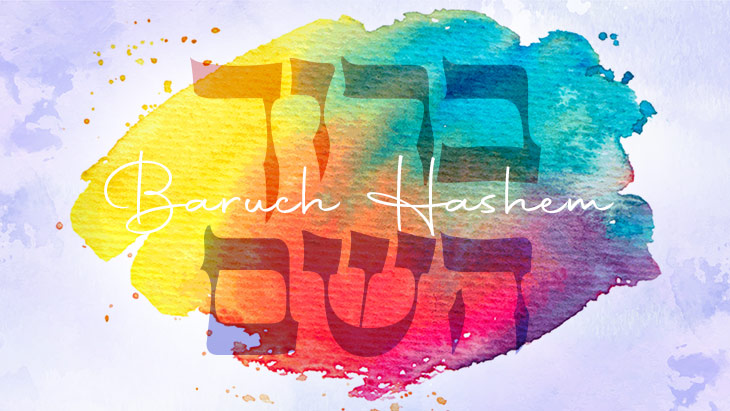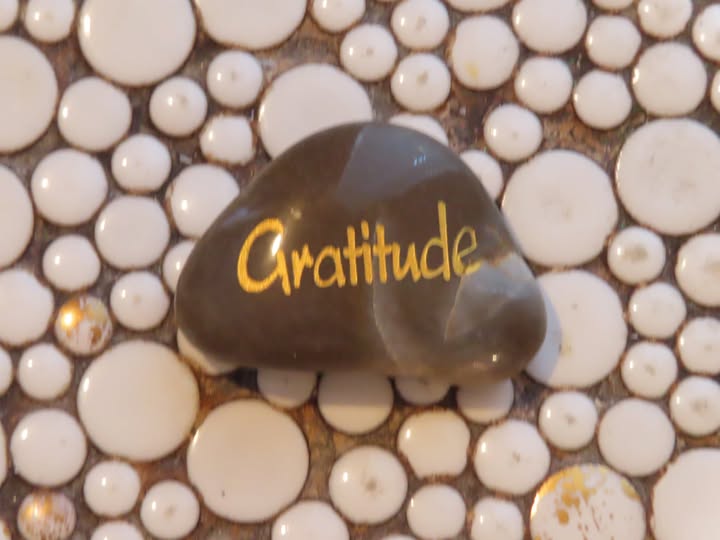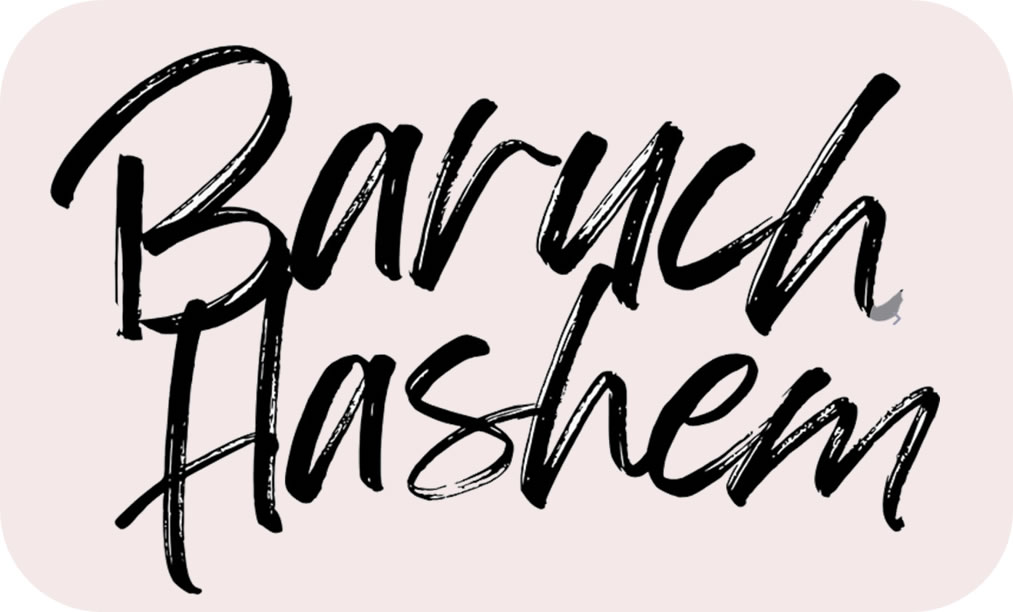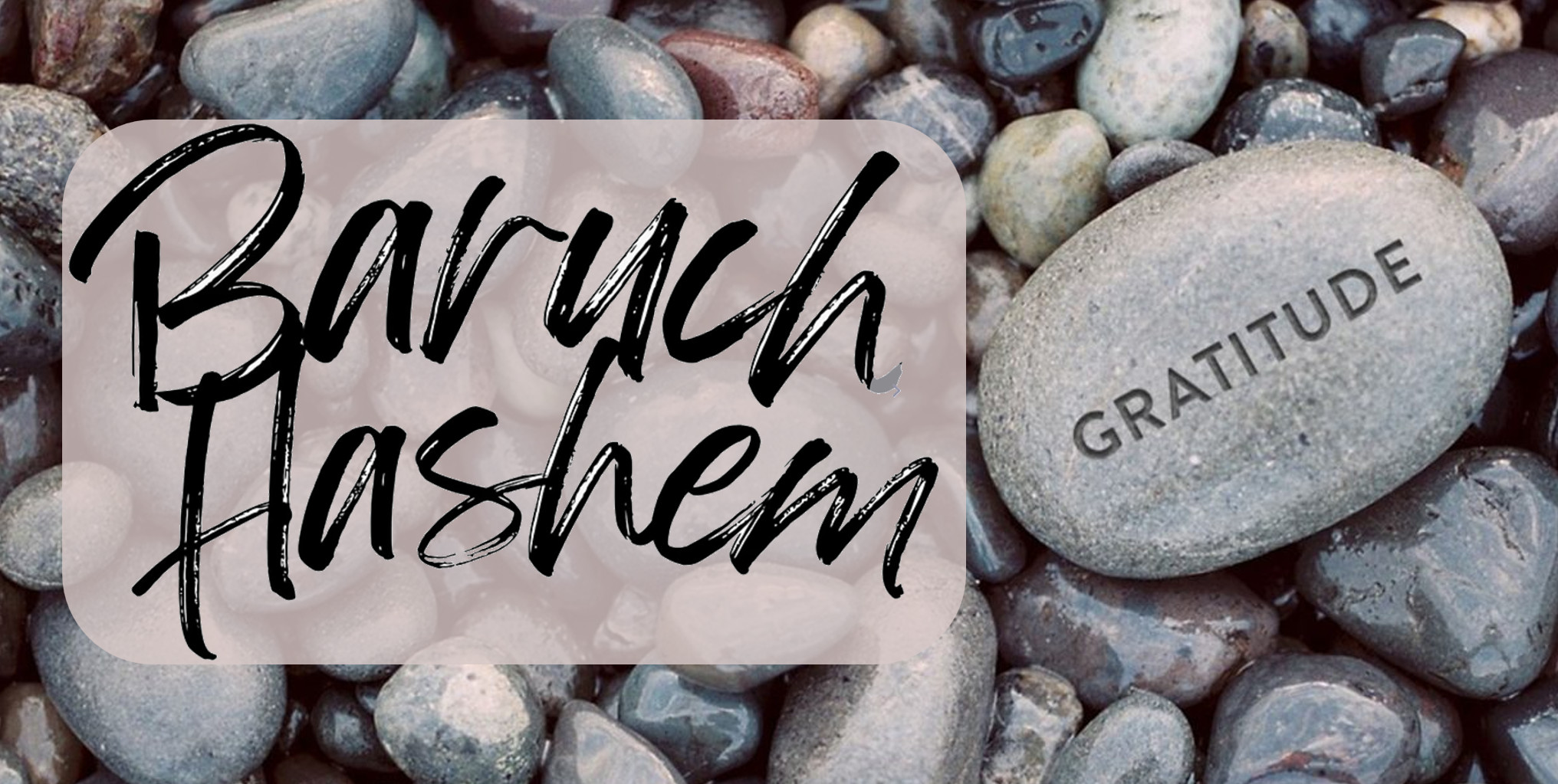The Quiet Revolution of a Grateful Life
“Gratitude is not only the greatest of virtues, but the parent of all the others." — Cicero
Gratitude does not shout. It does not demand attention or announce its presence. It arrives quietly, like morning light seeping through a curtain. It listens deeply. It notices the overlooked. In a world that constantly urges us to acquire more, prove more, and guard more, gratitude is a quiet revolution—an inner reorientation from restless striving to humble recognition.
To live with gratitude is to live with intention. It is a refusal to numb ourselves in the noise and an invitation to remain awake to what is. Gratitude does not depend on life being easy, fair, or predictable. It begins in noticing breath, the warmth of sunlight, the nearness of another’s presence. In this noticing, we say, Baruch Hashem—Blessed is the Name. These two words are not merely spoken; they are lived.
“Gratitude turns what we have into enough.” — Aesop
When practiced consistently, Baruch Hashem becomes the heartbeat of a life rooted in thankfulness. It becomes the soul’s rhythm—a way of seeing that transcends mood or moment. It can be whispered in laughter or cried through grief. It can be uttered in abundance or in lack. Gratitude does not erase hardship, but it opens our eyes to what still remains: breath, connection, memory, hope.
“Wear gratitude like a cloak and it will feed every corner of your life.” — Rumi
Gratitude is not passive. It is active attention. To give thanks is to soften the heart and open the spirit—to make space for grace, even when we feel small or unworthy. It is not reserved for when everything makes sense. Gratitude is spoken while life is still unfolding, while we are still learning, while the ending remains unknown. It is the steady exhale after fear, the gentle hand laid on sorrow, the quiet yes in the middle of waiting.
“It is not joy that makes us grateful; it is gratitude that makes us joyful.” — David Steindl-Rast
The quiet revolution of a grateful life is not about performance. It’s not for show. It is private, disciplined, and often invisible to others. It is the act of blessing what is, even as we long for what could be. It is choosing again and again to see the hidden goodness, to name it, to thank it. We may not always understand the purpose or the path, but we still find the strength to say Baruch Hashem.
- Not because everything is perfect.
- Not because everything is clear.
- But because we are still here.
- And that is enough.
Gratitude Begins with Two Words: Baruch Hashem
Gratitude is a deep feeling of thankfulness and appreciation for kindness, help, or benefits received. It is the recognition and acknowledgment of the good things in life, often accompanied by a desire to express thanks or return kindness.
Across every culture and tradition, humanity has searched for language to express thankfulness. In Hebrew, Baruch Hashem—“Blessed is the Name”—offers both reverence and simplicity. It is more than a phrase. It is a mindset, a posture of the soul, a daily act of remembering what is still good in the face of what is hard.
Gratitude, at its heart, is spiritual clarity. It lifts our eyes from what is missing to what is present. It teaches us to count the small graces that might otherwise go unnoticed: a kind word, a moment of silence, the return of morning.

Gratitude Is Not Dependent on Circumstance
Baruch Hashem is spoken in moments of joy, when gratitude flows easily and blessings are clear. But it also belongs to moments of waiting, of loss, and of not knowing. To say Baruch Hashem is faith. It is courage. It is the soul’s quiet resistance to despair, not denial. It is the soul’s quiet resistance to despair. It holds space for sorrow without letting sorrow speak the final word.
Gratitude in these moments becomes steady ground. Not because all is well, but because we choose to remember that goodness still exists, even here.
The first to say Baruch Hashem was Noah, after the flood in the bible. Eliezer said it upon finding a wife, Rebecca, for Abraham's son, Isaac. Jethro, Moses’ father-in-law, said it after the Exodus: “Blessed is God who saved you from Egypt.”
All three men were non-Jews who recognized God’s goodness. Saying Baruch Hashem—whether for health or finding a parking spot—reminds us that everything comes from the Divine.
Living a Life of Gratitude
Gratitude is not a fleeting emotion—it is a cultivated practice. And like all deep practices, it is learned slowly, with patience. Baruch Hashem becomes part of the rhythm of daily life: words said before a meal, after a difficult call, in silent prayer, in conversation, when seeing a rose, when watching the ocean’s endless waves, when you feel healing or experience a miracle. It rises in gratitude for the first breath of morning air, in the warmth of sunlight on the skin, and in the quiet smile of a loved one. It lives in shared conversation around the table, in laughter that brightens a weary day, and in tears that cleanse the heart. Baruch Hashem is spoken when a challenge is met with strength, when kindness is offered unexpectedly, and when hope flickers in the darkest moments. It is found in the stillness between heartbeats and the movement of life unfolding all around us. These two words gently retrain the heart to notice the now, to hold space for wonder, to shift from scarcity to presence.
Gratitude doesn’t require certainty or perfect faith. It asks only for willingness—a readiness to bless even the unfinished, to honor even the uncertain. In this way, Baruch Hashem is not a slogan. It is a return. A grounding. A whispered trust in the middle of mystery.
Baruch Hashem. Today. Always.
GRATITUDE QUOTES
- "Gratitude is not only the greatest of virtues but the parent of all the others." — Marcus Tullius Cicero
- "Gratitude bestows reverence, allowing us to encounter everyday epiphanies." — John Milton
- "Gratitude is the sign of noble souls." — Aesop
- "Let us be grateful to the people who make us happy; they are the charming gardeners who make our souls blossom." — Marcel Proust
- "Gratitude is the fairest blossom which springs from the soul." — Henry Ward Beecher
- "Silent gratitude isn’t much use to anyone." — Gertrude Stein
- "Gratitude is a currency that we can mint for ourselves, and spend without fear of bankruptcy." — Fred De Witt Van Amburgh
- "Gratitude changes the pangs of memory into a tranquil joy." — Dietrich Bonhoeffer
- "Gratitude unlocks the fullness of life and opens the door to abundance." — Melody Beattie
- "Gratitude transforms ordinary days into blessings and routine jobs into joy." — William Arthur Ward
- "Gratitude turns what we have into enough and more." — Anonymous
- "When gratitude becomes a habit, joy becomes a constant companion." — Anonymous
- "Gratitude is the heart’s memory, remembering all that nourishes the soul." — Anonymous
- "Gratitude is the foundation upon which happiness is built." — Anonymous
- "A grateful heart is a magnet for miracles." — Anonymous
- "Gratitude is the light that dissolves the shadows of suffering." — Anonymous
- "To cultivate gratitude is to invite peace into the soul." — Anonymous
These gratitude quotes remind us that gratitude is not merely a feeling but a way of living. It’s a practice that enriches our hearts, deepens our connections, and invites peace into every moment. Baruch Hashem Gratitude.

Baruch Hashem Is a Prayer
Baruch Hashem Prayers of Gratitude and Praise: We thank God for life, love, and unexpected grace. Praise is awe without asking, just honoring.
- Thankfulness: Giving thanks for breath, life, love, clarity, or unexpected moments of grace.
- Adoration: Feeling awe and reverence and offering honors.
Other forms of Prayer
Personal Prayers (for Oneself): We ask for help, admit our faults, or sit in silence, listening.
- Petition: Asking with humility: for wisdom, healing, or guidance.
- Confession/Repentance: Naming what needs repair, seeking renewal.
- Contemplation: Silent presence, listening more than speaking, resting in stillness.
Prayers for Others: We hold others in our hearts and offer peace, healing, or strength, even without words.
- Intercession: Holding someone in our heart, asking for their peace or restoration.
- Blessing: Speaking peace, light, or courage over others,even silently.
Communal or Ritual Prayers: Some prayers we say together. Others mark life’s sacred moments: beginnings, endings, and everything in between.
- Liturgical: Shared words that bind communities, depending on custom.
- Ceremonial: Prayers that mark sacred thresholds: births, marriages, deaths, beginnings, endings.
To live a life with the feeling of Baruch Hashem is to be rooted in thankfulness without condition. It is a daily return to the sacred in the ordinary. Gratitude becomes not only a feeling, but a way of moving through the world—with attentiveness, with humility, and with open hands.
We say Baruch Hashem not because life is without flaw, but because every breath is a gift. Baruch Hashem Gratitude helps you be thankful and appreciate with peace, presence, and greater spiritual clarity.
- Gratitude doesn’t remove pain, but it changes how we carry it.
- It doesn’t fix what’s broken, but it gives us strength to keep going.
- Gratitude doesn’t wait for the world to make sense. It blesses what is here.
- And sometimes, that blessing is enough to begin again.
Baruch Hashem Gratitude. Thanks, Awe, Appreciation, Reverence, Humility, Wonder, Praise, Blessing, Honor, Recognition, Joy, Sincerity, Holiness, Serenity.
Thank you, Merci, Toda, Gracias, Danke, Grazie, Arigato, Shukran, Dhanyavaad, Efharisto, Spasibo, Kamsahamnida, Mahalo, Tack, Obrigado, Salamat, Asante, Terima kasih.
Start with “Thank You.” Say out loud or silently “Baruch Hashem.” Let gratitude lead.


